
- Share via
Mohamad Abdelfattah was supposed to land at LAX last Tuesday at 11:45 a.m., where his wife, their baby and young son would be waiting for him, and they would celebrate his safe return from Gaza.
But Tuesday came and went, and Abdelfattah, a critical-care doctor, was still in the southern city of Rafah, with no way of leaving.
He was at the end of a two-week trip volunteering in one of the few hospitals that has remained open in the besieged city, days on end trying to save lives as Israeli airstrikes pummeled neighborhoods.
Then last week, after a rocket attack by Hamas killed four Israeli soldiers, the border crossings with Egypt and Israel were closed.
Abdelfattah’s wife, Donya Salah, waited at home in Orange County with her phone close at hand.
“Could you please be careful?” she texted him last Wednesday morning after he asked her to cancel his appointments for the week at Martin Luther King Jr. Community Hospital in South Los Angeles.
“Yes,” he replied. “Doing my best.”
Salah, 30, knew then that he, too, was worried.
Speaking with The Times last week, Abdelfattah, 37, described his growing frustration as the Israel-Hamas war has intensified a humanitarian crisis that is pushing Rafah, a city sheltering close to a million refugees who have fled fighting in the north, deeper into chaos.
Israel ordered the evacuation of neighborhoods to the east and south of the hospital, in what it is calling a “limited operation” but many believe is the start of a more significant incursion.
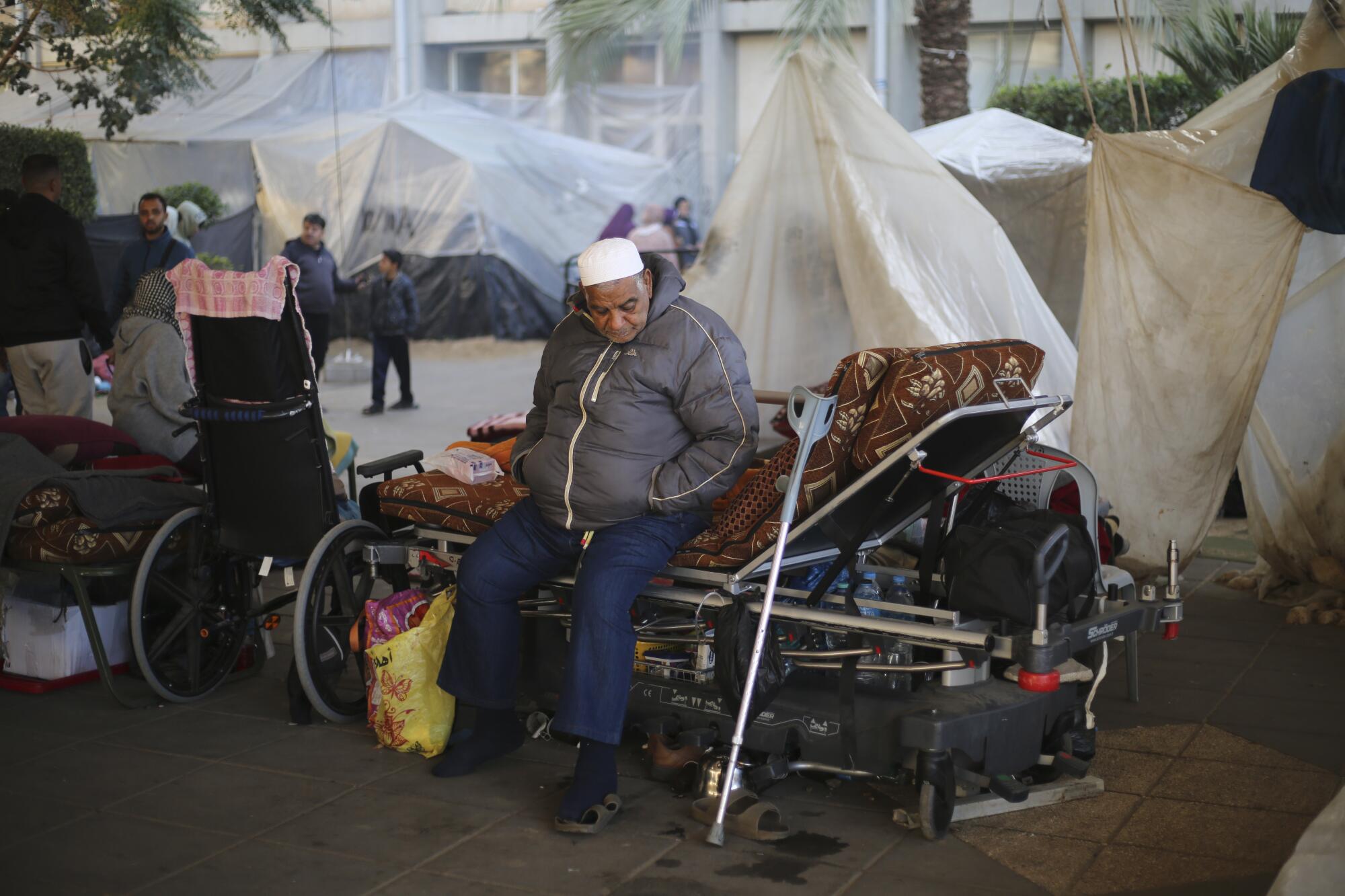
More than 35,000 Gazans have died in Israeli retaliatory attacks since Oct. 7. Nearly all of the Gaza Strip‘s 2.3 million residents have been displaced, with about half at imminent risk of famine, international health officials say.
After arriving at the European Hospital with a team of 19 volunteers from the Palestinian American Medical Assn., Abdelfattah was stunned to see so many people — by his estimate, thousands — sheltering inside the facility and on its grounds.
Families were living in the corridors, their privacy maintained by bed sheets hung from the ceiling.
“Kids were running in and out of the sheets,” he said. “Babies were crying. You could smell cooking.”
Trained as a pulmonary and ICU physician, Abdelfattah had been at MLK for three years. The memory of the pandemic and the second wave of COVID infections was still fresh in his mind: drowning in the 12-hour shifts, multiple codes at once, cardiac arrests. He thought he would be prepared for a war zone.
But the intensive care unit here was in a state of “complete chaos.”
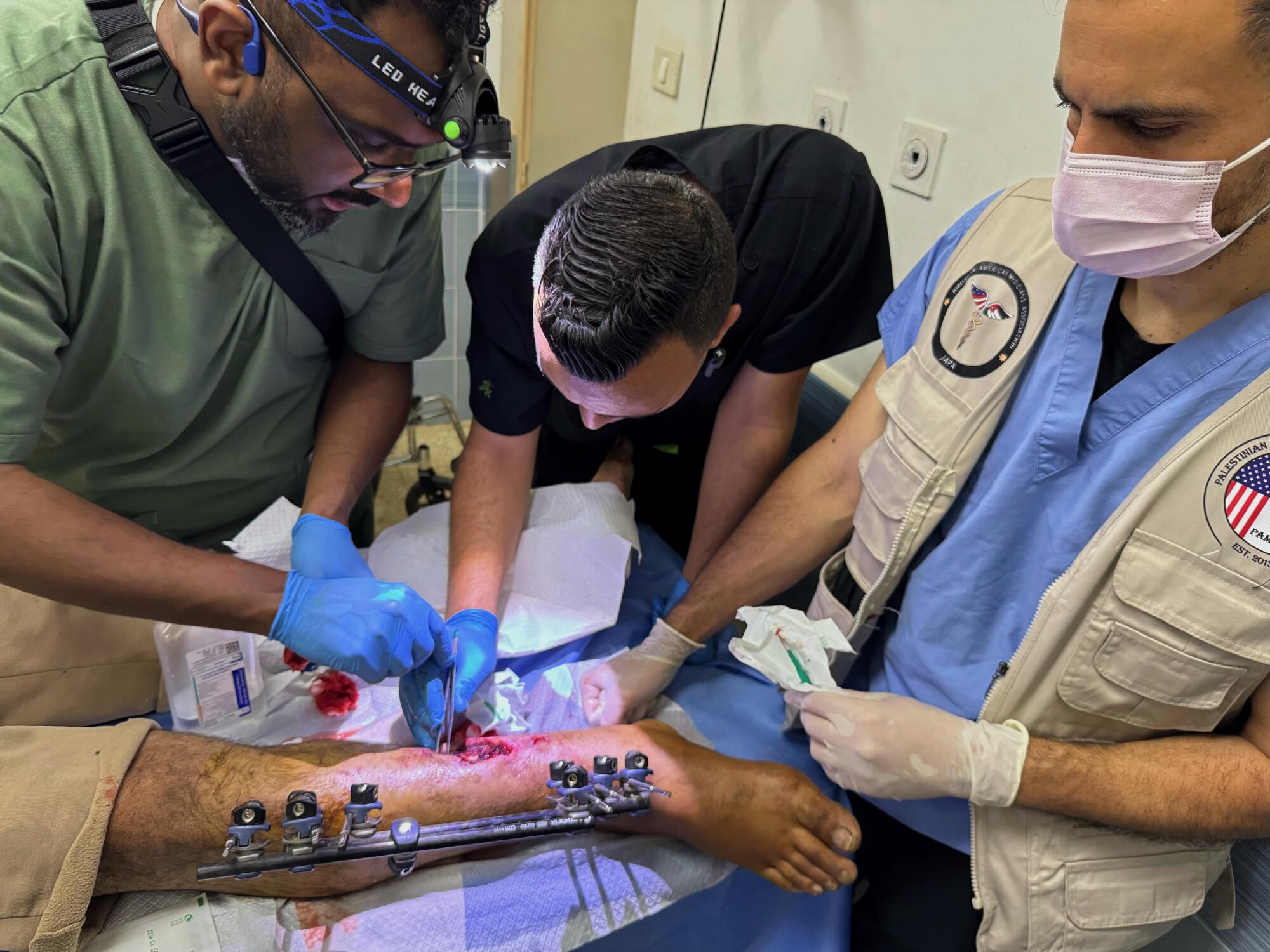
“Patient monitors were constantly ringing,” he said. “There was no infection control, no hand soap, no contact gowns. Flies were everywhere, landing on wounds. The staff was exhausted and burned out.”
One of his first patients was an infant girl whose leg was cut open to the bone by shrapnel. Another little girl with head trauma was intubated; her mother nearby kept saying she wished she could trade places with her daughter.
Abdelfattah was not used to pediatric cases; he hadn’t anticipated seeing so many children. He was reminded of his own.
His second son had just been born in December. His 2½-year-old was just learning to ride a scooter. The little boy enjoyed playing on the swings at the park near their home.
After the Oct. 7 attack on Israel by Hamas assailants that killed about 1,200 people, Abdelfattah feared for Gaza. He knew from experience that the retaliation would be brutal.
He had first visited the narrow, densely populated strip of land in 2009 with a convoy of humanitarian aid, which allowed him to see firsthand the destruction from urban battles with Israel months earlier.
His grandfather had immigrated to the United States from the West Bank in the 1970s, and as a college student at UC Irvine, Abdelfattah was active with the Muslim Student Union, bringing attention to the plight of the Palestinian people.
“To grow up with no future, no hope,” he said, “that is not an environment you want to be raised in.”
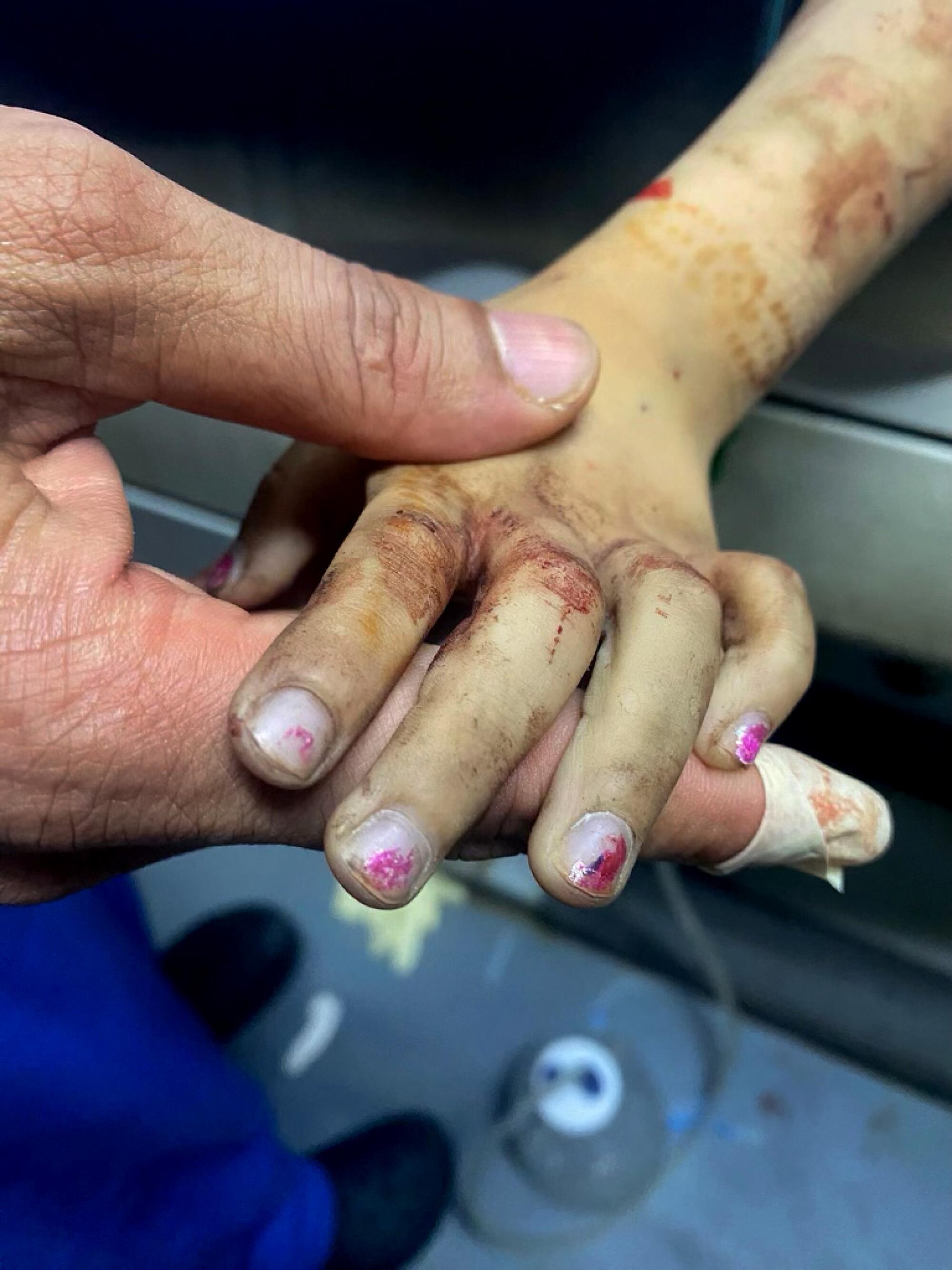
Soon after Oct. 7, Abdelfattah co-founded Orange County for Justice in Palestine with the goal of winning support for a cease-fire among local politicians.
But after weeks of campaigning and demonstrating with little results, he wanted to do more.
When the Palestinian American Medical Assn. put out a call for doctors to volunteer in Gaza, he told Salah that he needed to go.
Their conversation was difficult, as he recounted. They were settling into a new home in Tustin, and with the baby she needed him nearby.
They talked about the Israeli attack that killed seven members of the World Central Kitchen, and what she would do if he died.
Not wanting to worry their families, they shared his decision only two weeks before his departure.
Flying from Los Angeles International Airport to Istanbul and then Cairo, he and the medical team crossed into Rafah with nearly 250 suitcases filled with medication, feminine hygiene products, candy, coloring books, water purification tablets and other supplies.
The group paused for a picture in front of an “I LOVE GAZA” sign, and Abdelfattah, for a brief moment, felt happy. “This is where I wanted to be,” he said.
At the European Hospital, sounds of explosions from airstrikes were inescapable. Drones buzzed relentlessly overhead. The severity of the injuries was made worse by infections and the lack of supplies.
In the evenings, Abdelfattah would call Salah and share some of what he was experiencing. She could tell he was trying not to worry her.
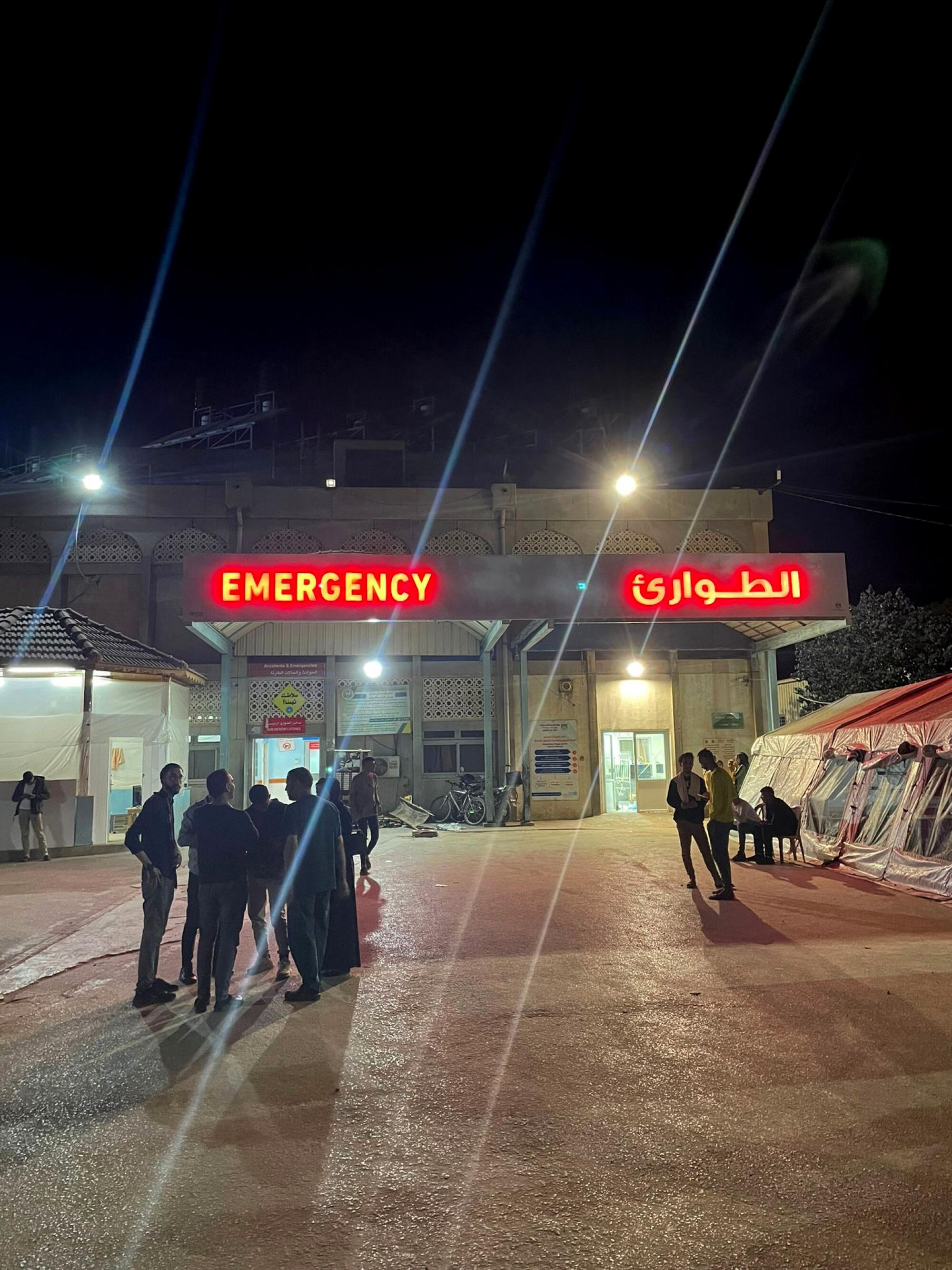
He told her he was exhausted, sleeping no more than two hours at a time. He and 40 others on the medical staff were staying in a dormitory at the nursing college. They slept on mattresses on the floor. Hospital staff prepared whatever food was available.
After morning prayer, he would go to the emergency room and start his shift.
For the record:
12:10 p.m. May 20, 2024An earlier version of this article said that on May 6 there was news Hamas had accepted the terms of a cease-fire. The article now attributes that information to Hamas, and additionally says U.S. and Israeli officials disputed the claim.
A week into the two-week rotation — on May 6 — came news that Hamas said it had accepted the terms of a cease-fire proposed by Egyptian and Qatari mediators, a claim U.S. and Israeli officials disputed.
Abdelfattah recalled the celebration — children singing, fireworks — but within an hour, explosions in the distance could be heard. The bombing was continuing. There was no cease-fire.
Israel had ordered an evacuation of Rafah’s eastern neighborhoods for a “limited” operation. For Abdelfattah and others, the action seemed like the beginning of the long-awaited invasion of the city.
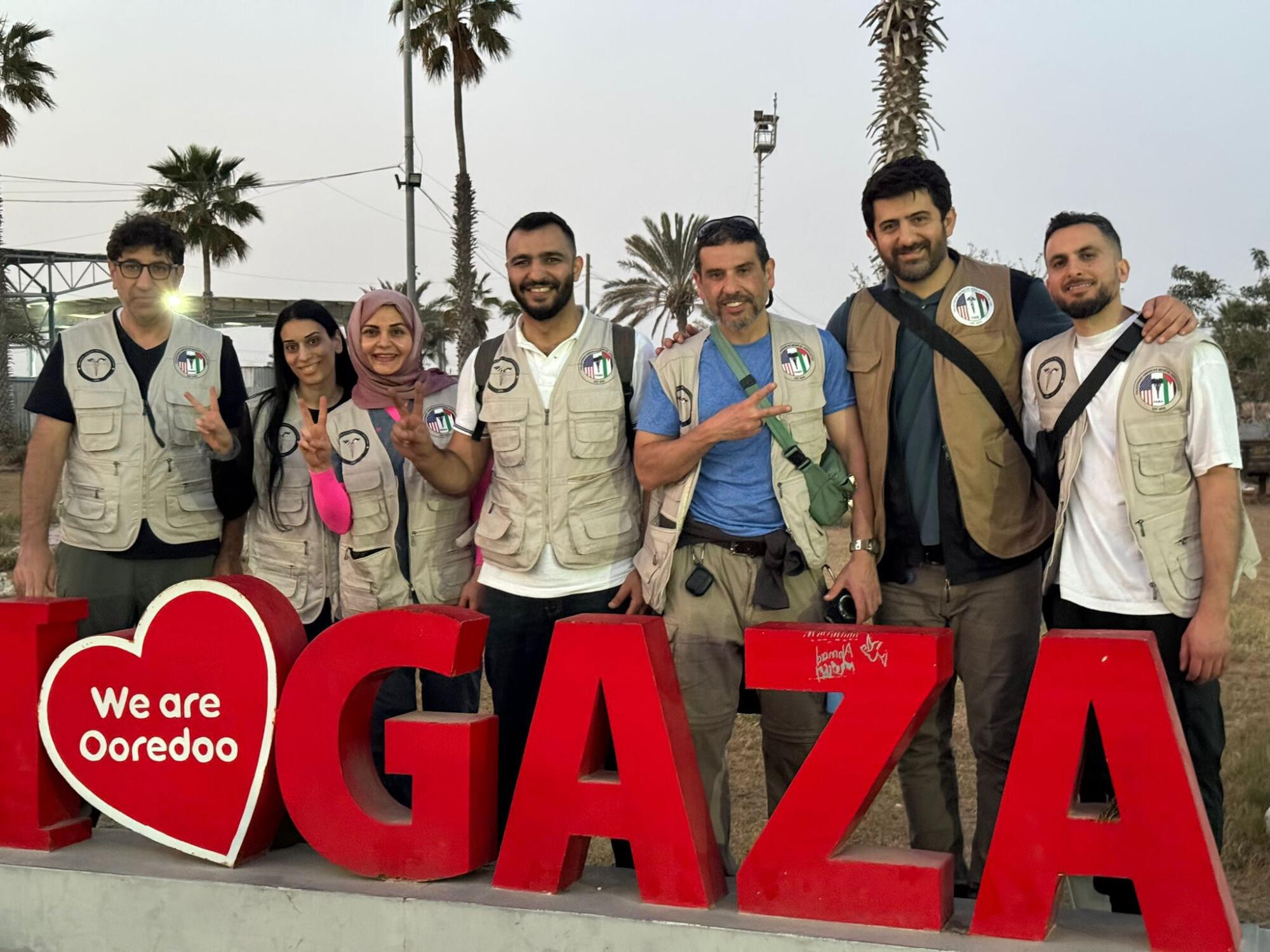
He had heard that tanks had rolled over the I LOVE GAZA sign, and a United Nations convoy on its way to his hospital had come under attack, leaving one dead and one wounded.
Buses began transporting people from the hospital to a safety zone on the coast, he said, and the corridors of the hospital grew less crowded. The bombing continued. He felt the jolts as the blast waves shook the windows.
He also noticed that most Gazans didn’t even flinch.
“People have been so traumatized over the last seven months,” he said, “and they all have stories: homes being destroyed, losing multiple family members, moving and evacuating four, five times. Nothing is safe.”
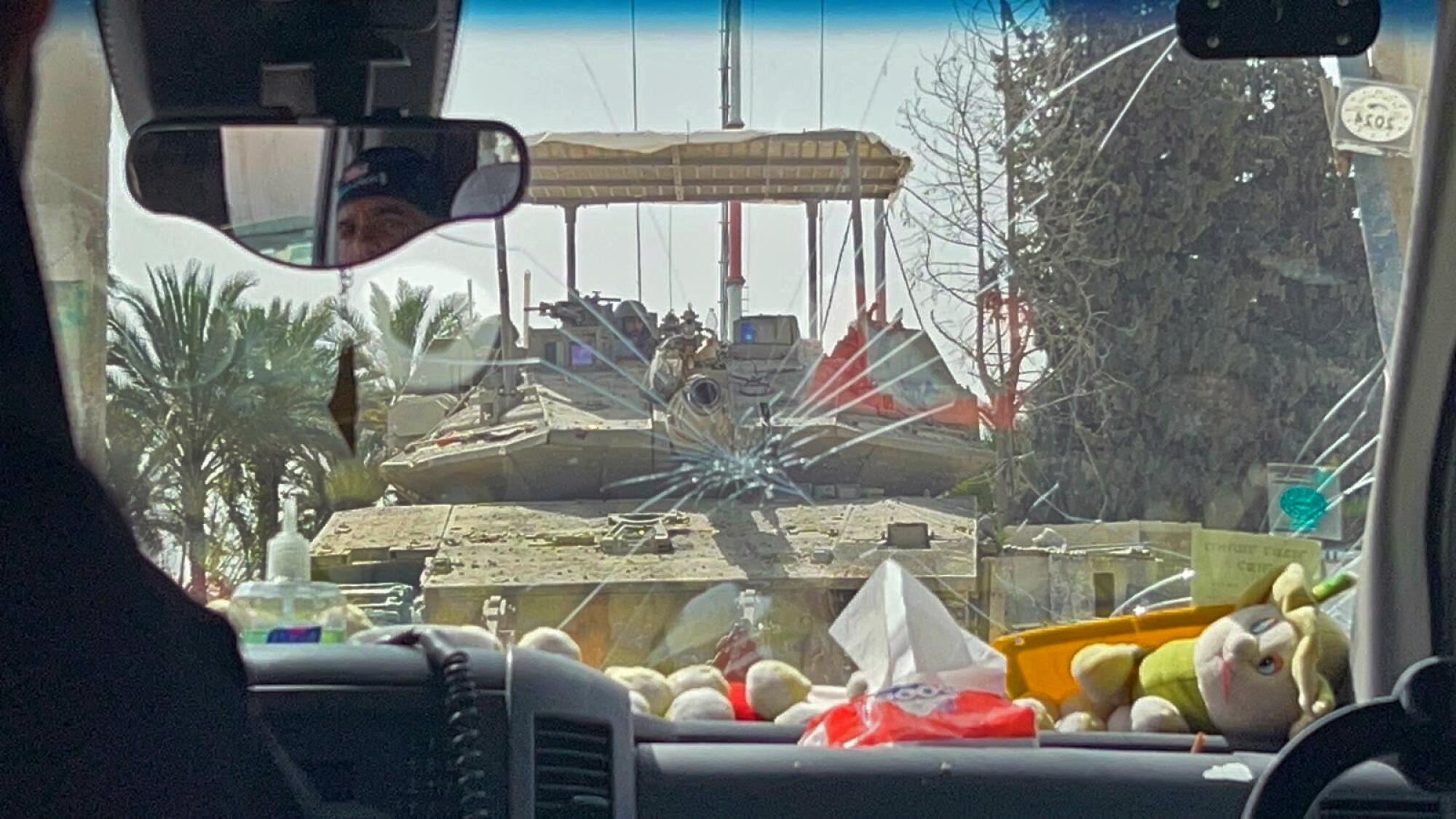
Patients continued to arrive, mostly with severe burns, mostly children. After one recent strike close to the hospital, he went to the intensive care unit, where doctors were treating a brother and sister, both under 2.
“The prognosis is not good,” he wrote in a text.
Then late last Thursday night, the medical team learned that the U.S. Embassy in Jerusalem had arranged for their evacuation. They would be leaving at 6 a.m. the next morning.
Some of the doctors decided to stay. Abdelfattah was torn. But he had promised Salah he would leave when given a chance. His son had been asking for him.
The drive to the border took them through neighborhoods that had been destroyed. The minaret of every mosque they passed was toppled, he said.
At the final checkpoint, an Israeli tank blocked their way before finally backing down.
Once in Jerusalem, Abdelfattah went to the Al-Aqsa Mosque to pray. The serenity — so palpable, he said — was surreal: for the first time in two weeks, no drones, no bombs.
“I wish this were the case in Gaza,” he said.
On Sunday at 2:15 p.m., Abdelfattah landed at LAX, where his wife, their baby and young son were waiting for him.
More to Read
Sign up for Essential California
The most important California stories and recommendations in your inbox every morning.
You may occasionally receive promotional content from the Los Angeles Times.











